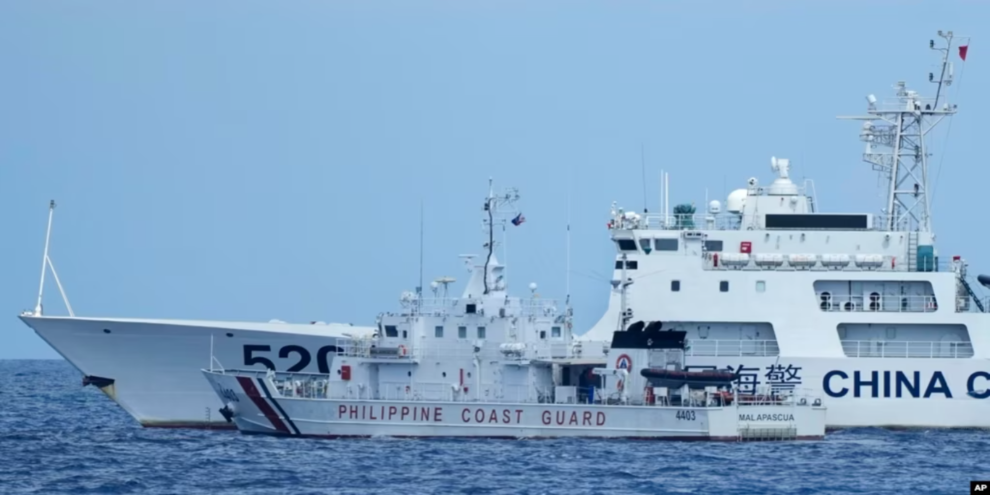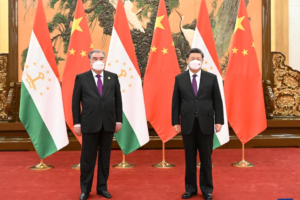WASHINGTON — The topic of China’s increasing assertive activities in the South China Sea, from harassing vessels and building structures to introducing a new map with sweeping territorial claims, was prominent at the annual ASEAN Summit in Jakarta last week.
But ASEAN, the bloc of 10 Southeast Asian nations that operates on the principle of consensus and noninterference of sovereignty, continued to be divided over dealing with China’s aggressive behavior in the disputed waters and seeking support from non-ASEAN partners, experts say.
“ASEAN’s disunity on Chinese assertiveness in the South China Sea has been on display for over a decade after Cambodia, as ASEAN chair in 2012, refused to include a reference in the Chairman’s Statement,” Carl Thayer, professor emeritus of politics at the University of New South Wales Canberra, said in an email to VOA Khmer.
Thayer said that although Indonesia, which is this year’s chair, mentioned in the Chairman’s Statement that some ASEAN members expressed concerns about Beijing’s land reclamations in the South China Sea, military activities and serious incidents in the area, “there is nothing ASEAN can do collectively to alter the ‘facts on the ground’ except name and shame China.”
“China can easily exert pressure on ASEAN member states to prevent consensus forming to take more assertive action,” he said. ”China could use punitive economic sanctions against any country that attempted to stand up to China.”
Yulius Hermawan, a lecturer on international relations at Parahyangan Catholic University in Bandung, Indonesia, told VOA Khmer in an email it is worrying that ASEAN leaders failed to show a united response to China, which “may reflect a high degree of China’s ability to steer ASEAN as a regional bloc.”
“ASEAN leaders whose countries are not engaged directly in the conflict, including Indonesia, have been apparently very careful in addressing the issue of [the] South China Sea for the sake of their economic interests,” said Hermawan.
“They kept silent, even when their fellow ASEAN members raised their open harsh protests against China’s rude action in their territories,” he said.
A revised map
In July, China and ASEAN agreed on a series of guidelines to conclude a nonaggression pact aimed at preventing conflicts in the contested waters.
China, however, has dragged its feet on an agreement that would limit its action with increasing assertiveness in the disputed territory.
On August 28, Beijing published a new version of its national map asserting possession over nearly the entire waters, drawing strong protests from its neighbors, according to The Associated Press.
China dismissed the complaints.
Chinese Foreign Ministry spokesperson Wang Wenbin said the revisions of the map were a “routine exercise of sovereignty in accordance with the law.”
“We hope relevant sides can stay objective and calm, and refrain from overinterpreting the issue,” he said during a daily press briefing on August 30.
Divided response
ASEAN remains divided over how to respond to China’s territorial claims in the disputed waters.
Among ASEAN member states, the Philippines, Vietnam, Malaysia and Brunei are official claimants against China.
They failed to bring the other six members — Cambodia, Indonesia, Laos, Myanmar, Singapore and Thailand — on board to collectively and assertively address the South China Sea disputes in a joint statement as the summit wrapped up Thursday.
Myanmar has not been invited to the summit since the military seized power in February 2021.
Source : VOA News
















